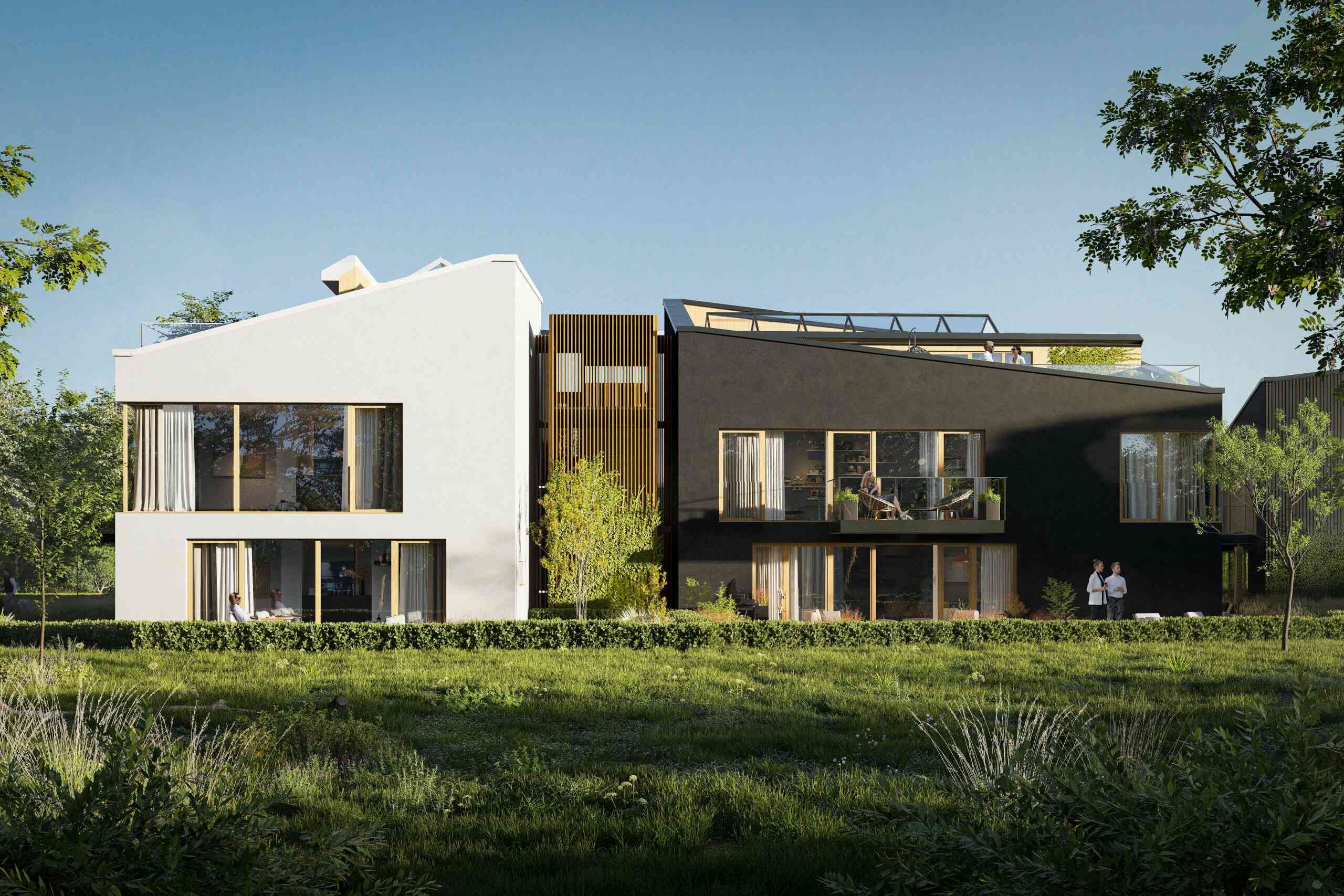Location - an important element in the decision
Housing in cities
Housing in or near city centres offers the convenience of proximity to workplaces, schools, shops, restaurants, cultural facilities and other amenities. The availability of public transport, tram and bus stops and bicycle rental facilities is a major advantage. On the other hand, living in the inner city can be associated with noise, hustle and bustle and a lack of space. In addition, residents in these areas often face parking problems and limited opportunities to spend time outdoors.
Houses on the outskirts of cities
Houses located on the outskirts of cities offer peace, quiet and greater privacy. Large plots of land with gardens are an attractive option for those looking for outdoor space. However, it is important to bear in mind that living on the periphery involves a daily commute to the centre, which can generate additional time and transport costs. The availability of services in the area, such as shops, schools or medical facilities, is also an important factor.
The alternative: Urban villas
Modern developments that combine the advantages of both houses and flats include estates located on the outskirts of cities, which offer the comfort of city life with access to space and greenery. An example of such an investment is the Royal Garden Wilanów Apartments, which are characterised by tranquillity, proximity to nature and modern architecture. The estate provides an intimate atmosphere thanks to low-rise buildings, spacious flats and carefully planned vegetation, which provides a natural barrier from city noise. Significantly, the project area is dominated by greenery, accounting for as much as 73% of the area. Moreover, the estate's layout allows only pedestrian and bicycle traffic, which further promotes the safety and comfort of residents.
Cost of living - which is cheaper?
Flats
The costs associated with maintaining a flat tend to be lower, as charges for utilities, cleaning, building management and other services are shared among all residents. Smaller flat areas translate into lower heating and other utility bills. In addition, many of the charges are borne by the housing association, allowing for efficient cost management.
Homes
In the case of houses, the owners are responsible for all the costs associated with maintaining the property. This includes charges for heating, water, electricity and garden maintenance. In addition, houses require more care of the infrastructure, which involves costs for renovations, repairs or insurance. Higher bills are also due to the larger living area. In the case of detached houses, the owners also have to take care of the efficiency of appliances and installations themselves.
Factors influencing choice - individual needs and preferences
Family and lifestyle
Houses are the ideal choice for those seeking spaciousness and privacy. Larger space, gardens and the ability to personalise the space are important advantages. Flats, on the other hand, are more comfortable for people who value the convenience of living in the centre and care about proximity to work, school or shops.
Mobility and access to work
Living in the city centre gives easier access to work, schools and other institutions. However, it comes with higher levels of stress, noise and air pollution. Homes on the outskirts of cities require longer commutes, which can be inconvenient, especially for a family with children. On the other hand, living on the outskirts offers quiet, more spaciousness and contact with nature.
Age, marital status and future plans
Younger people or singles often choose to live in the city centre, where they have easy access to all city attractions. Families with children tend to choose homes that provide space to play and relax outdoors. It is also worth considering your future needs - whether a larger home will be more suitable as your family grows, or whether investing in a flat will remain a comfortable option for the long term.
Bottom line - what to choose?
The final choice between house, flat or urban villa depends on your preferences and financial possibilities:
- A house is the best option for people who value privacy, spaciousness and living outside the city. It is also an excellent choice for families with children who need more space. However, it requires higher maintenance costs and a longer commute.
- A flat is a great option for people who prefer city centre living, value proximity to institutions, shops and the convenience of transport. It is cheaper in terms of maintenance costs, but may involve less living space.
- An urban villa is a modern alternative that combines the comfort of city living with the spaciousness and privacy of a home. This solution is attractive to those seeking a balance between living in the centre and being close to nature and spaciousness.
The importance of choosing the right location
Location is one of the key factors that affect the comfort of everyday life. Before making a decision, it is worth paying attention to the accessibility of transport, proximity to work, shops, schools and planned infrastructure developments that may increase the value of the property in the future.
Choosing between a house, a flat or an urban villa is a complex decision that requires consideration of many aspects. You need to carefully analyse your needs, your lifestyle, as well as your financial possibilities in order to make the best decision that suits your requirements both now and in the future.




